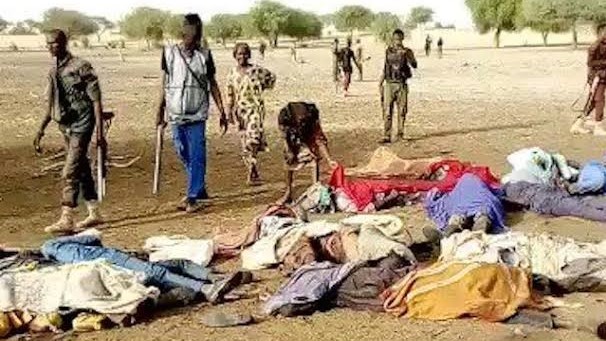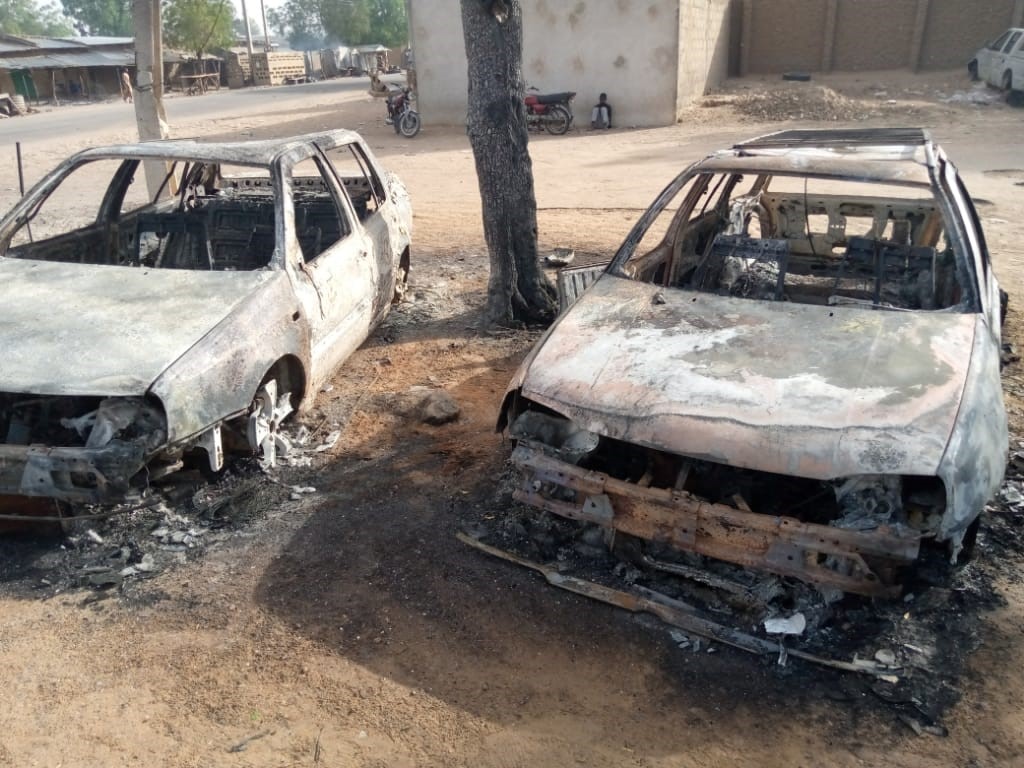Agonies Of Communities In The War Front: Brutalized, Exploited And Traumatized By Army and Insurgents

When the military is deployed to protect a community from terrorist attacks, the people are happy and offer them needed support to succeed in their assignment. When the soldiers are redeployed for operational reasons, the armed groups come almost immediately and punish the community for assisting the military, several villagers in insurgency ravaged communities in the Northeast say.
A HumAngle investigation revealed that communities in Borno, Katsina, Yobe and Zamfara states are increasingly under pressure by both the military and terrorists to provide information to support their respective interests.
When the Islamic State affiliate in West Africa, (ISWAP) sacked the Multinational Joint Task Force stationed in Baga in December 2018, “they asked those that wanted to leave to go and those who wanted to stay back were allowed to do so. I left for Maiduguri but two of my brothers that remained behind to continue fishing were executed by the military when the soldiers came back to the fishing town,” said Alhaji Abdullahi Baga in Maiduguri.
On Tuesday, June 9, ISWAP attacked Goni Usmanti village in Gubio Local Government Area in Borno State, killing more than 90 civilians, burnt down houses and killed scores of livestock belonging to the villagers.
The terror group, ISWAP, later claimed responsibility for the attack but said it was because of clashes in the area with the Civilian Joint Task Force, a government-funded vigilance group. It referred to those killed, including women and children, as militias who supported the military in the area.
“Caliphate soldiers attacked the headquarters of the militia elements loyal to the apostate Nigerian Army near the town of Gubio in the region of Borno,” declared a statement by ISWAP, published in Amaq, a Jihadi propaganda news outlet.
The position of the Nigerian military on the attacks affirmed the view of the terrorists.
The cause of the attack in Gubio and a similar attack in Katsina by armed groups was because “residents in the areas had informed the military about the location of the attackers,” said Maj.-Gen. John Enenche, the Coordinator of Nigerian Defence Information.
HumAngle earlier reported that ISWAP recently read the riots act in several communities in Kukawa, Abadam and Marte local government areas in Borno State. The Jihadists declared that every able male living in their Daula [Islamic State] must fight against the military.
To make good their threat, they lined up several young males and flogged them with horsewhips for staying idle and possibly providing information to the military.
In May, HumAngle equally reported how soldiers allegedly burnt Jaja village in Zamfara State to the ground with one person shot in the leg after the military accused the villagers of colluding with armed groups against the state.
In a petition, the community said “the Nigerian Army in its efforts to salvage Gidan Jaja community ended up raiding and torturing innocent and unarmed people, including women and children. This, however, resulted in the loss of houses, cars, and other valuables, including shops, as well as torture and injury on people.”

According to Ryan Cummings, a South African based, security expert and director of Signal Risk, the Nigerian military makes a conscious decision to repopulate many areas it liberates in Northeast Nigeria knowing full well that these areas are not secure and that the threat by Boko Haram and ISWAP is still acute.
“Now, they have placed civilians in a position to share intelligence on a group, such as ISWAP, which has done a better job in recent months in establishing a stronger social contract with civilians than the Nigerian state,” he said.
Civilians across Northern Nigeria are at a crossroads with competing armed groups and state actors forcing innocent and defenceless people to advance their respective causes, HumAngle learnt.
This is coming at a time armed groups in both the Northeast and the Northwest are increasingly escalating hostilities against entities that they consider receptive to government forces.
“The Nigerian state is making these demands without being able to provide its civilian collaborators with much protection,” said Cummings.
He said it was regrettable that the military, already, unable to guarantee the safety and security of civilians, are placing these communities at greater risk by asking for their collaboration against groups which have demonstrated a willingness to use excessive violence against anyone seen as challenging their authority.”
Other security experts stressed that a new strategy was urgently required, one that guarantees the protection of civilians and their already scarce properties.
Without a strategy, no civilian deserves to die by simply answering questions by either armed state and non-state actors, across restive Northern Nigeria, they said.
Support Our Journalism
There are millions of ordinary people affected by conflict in Africa whose stories are missing in the mainstream media. HumAngle is determined to tell those challenging and under-reported stories, hoping that the people impacted by these conflicts will find the safety and security they deserve.
To ensure that we continue to provide public service coverage, we have a small favour to ask you. We want you to be part of our journalistic endeavour by contributing a token to us.
Your donation will further promote a robust, free, and independent media.
Donate HereStay Closer To The Stories That Matter




